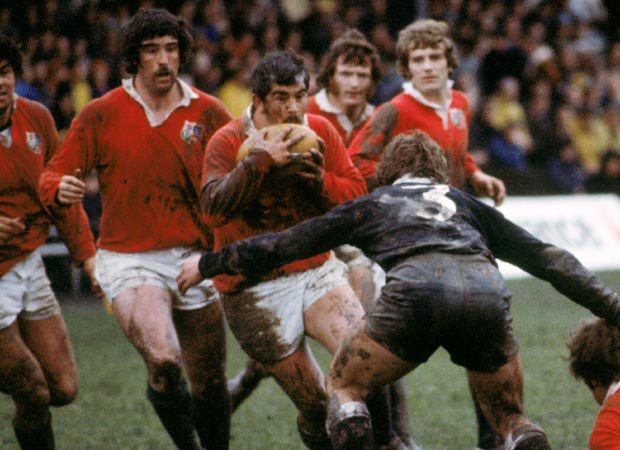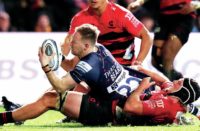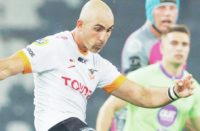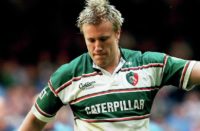 At a push, they could pass for a platoon of D-Day veterans rather than the only rugby team to survive three months in the African jungle. During a relentless period of hand-to-hand combat, they never lost a fight, let alone a match, and now they are preparing to be feted once again. The only invincible Lions reassemble this week for special events on opposite sides of the Irish border to mark the 40th anniversary of the tour to beat all tours.
At a push, they could pass for a platoon of D-Day veterans rather than the only rugby team to survive three months in the African jungle. During a relentless period of hand-to-hand combat, they never lost a fight, let alone a match, and now they are preparing to be feted once again. The only invincible Lions reassemble this week for special events on opposite sides of the Irish border to mark the 40th anniversary of the tour to beat all tours.
If some are slow enough and old enough to be candidates for a re-casting of Dad's Army, then nobody ought to be in any doubt that these were the men who gave the Springboks more than a bloody nose. Of their 22 matches, they won 21 and drew the other.
At a time when too many referees turned a blind eye to what the late Bill McLaren used to call “a bit of how's-your-father”, the Lions took the law into their hands and did the job for them. They were their own vigilantes, as riotous off the pitch as they tended to be on it when the situation demanded.
When they gather in Belfast on Thursday, the old stories will be told as if they happened yesterday – of pushing one player's bed out of his room until it dangled above the entrance to the hotel and almost setting fire to another during one of those Sundays when they drank for England, Ireland, Scotland and Wales, all at the same time.
There will be other ripping yarns of a time long gone, of the infamous “99” call, of a match against the Orange Free State which had to be stopped while they combed through a patch of grass looking for Johan de Bruyn's glass eye. It had been knocked out of its socket by a British fist.
Tragically, ‘Rippers' won't be there to join in the fun. Neither will ‘Broon frae Troon', nor ‘Merve the Swerve'. How poignant that three of just about the biggest individuals in a 30-man squad, physically and metaphorically, should be the only three to have passed on.
Gordon Brown, the inimitable Scottish lock, died in March 2001 from cancer aged just 53. Andy Ripley, the dynamic English forward whose boundless athleticism helped change the shape of the Test pack, passed away four years ago after a five-year fight against prostate cancer.
Mervyn Davies, the beanpole Welshman whom the All Blacks identified as the decisive factor in the Lions series win there in 1971, died of lung cancer in March 2012. He was 65, Ripley 62.
“It's very sad to think that the three biggest blokes on the tour should have gone first,” says the indestructible Welsh hooker Bobby Windsor, another larger-than-life character. “Andy Ripley was a real gentleman and a superb player.
“Broonie was my buttie on tour and we kept in regular touch right up to the end. If Merv hadn't been hit by that brain haemorrhage the year before the '77 Lions tour of New Zealand, he'd have gone as captain and we'd have won the series.
“Losing Merv was a real tragedy for the Lions. The All Blacks weren't that good by their standards but some of those Lions on the '77 tour didn't mind whether they were in the Test team or not.
“In South Africa we had 30 players who went at it hammer-and-tongs on the training ground every day. Fourteen never got into the Test team but if they had, we'd have kept winning because they were all that good.
“Mind you, we were up against it even before the tour began what with all the political stuff going on.
“We knew we'd be criticised and we also knew were going to have to fight for our lives. Looking back, that was our D-Day.”
Willie John McBride, captain and commander-in-chief, prefaced the trip by confronting the political storm, that the tour would give succour to a South African government despised for its apartheid system of racial segregation.
“Gentlemen, if you have any doubt about going on this tour, I want you to be big enough to stand up now and leave this room because you are no use to me and you are no use to this team,” McBride told them at their pre-tour base in Eastbourne.
“I have been in South Africa before and there is going to be a lot of physical intimidation, a lot of cheating so if you are not up for a fight, there's the door.”
The speech filled Windsor's ears with sweet music. The Lions would have their Butch Cassidys, Ned Kellys and Dick Turpins but there was never any doubt from day one that Windsor would be their Jesse James.
When ‘The Duke' checks into the five-star hotel in Belfast where the Lions are holding their dinner run by the Wooden Spoon Society, it will be a matter of time before the retired steelworker becomes the life-and-soul of the party. At 68, he dares not look ahead to the 50th anniversary.
“I should imagine this will be the last one,” he says. “So I will make the most of it and have a drink or three to the greatest blokes I ever toured with…”
*This article was first published in The Rugby Paper on June 15.



























